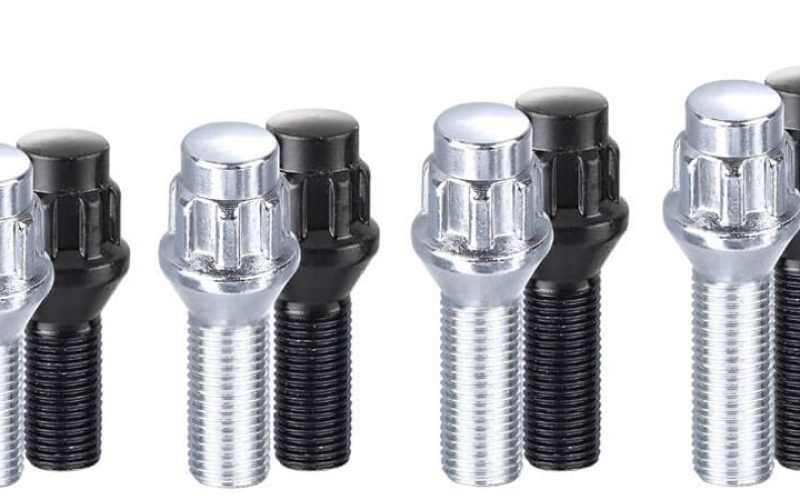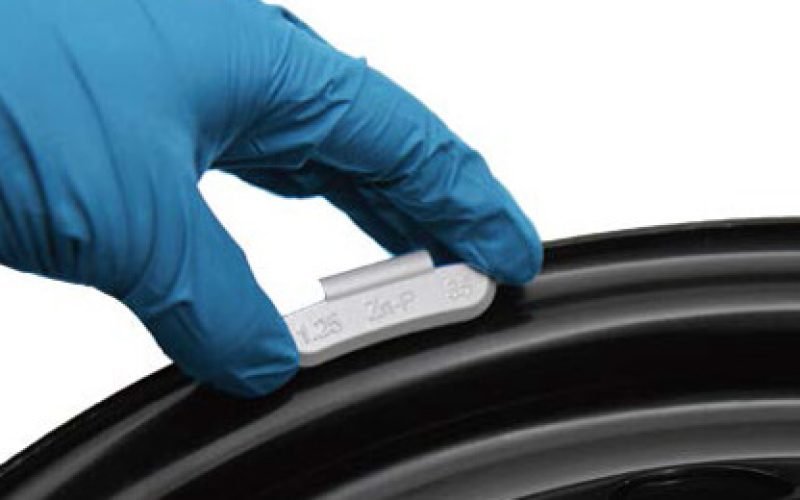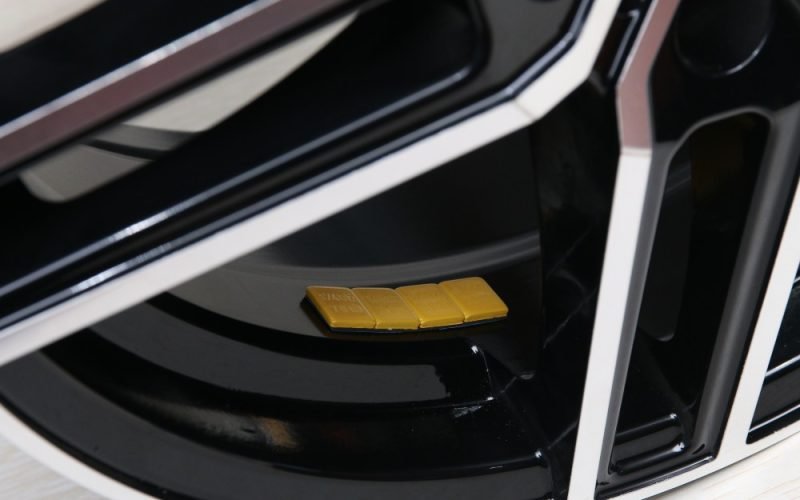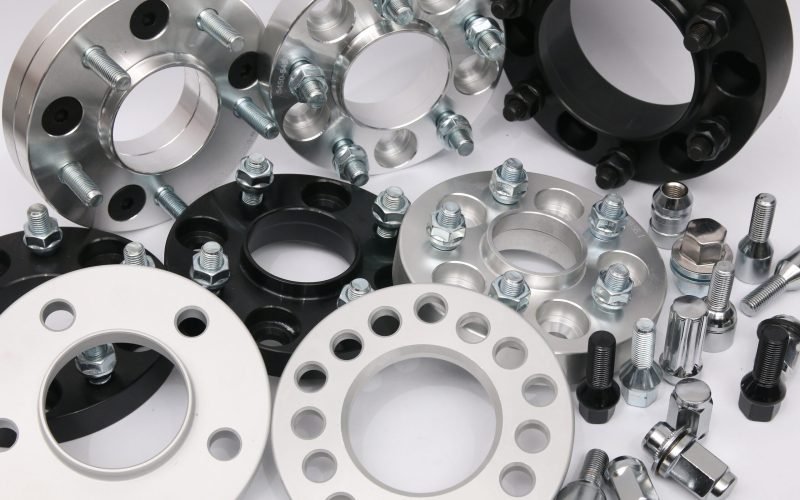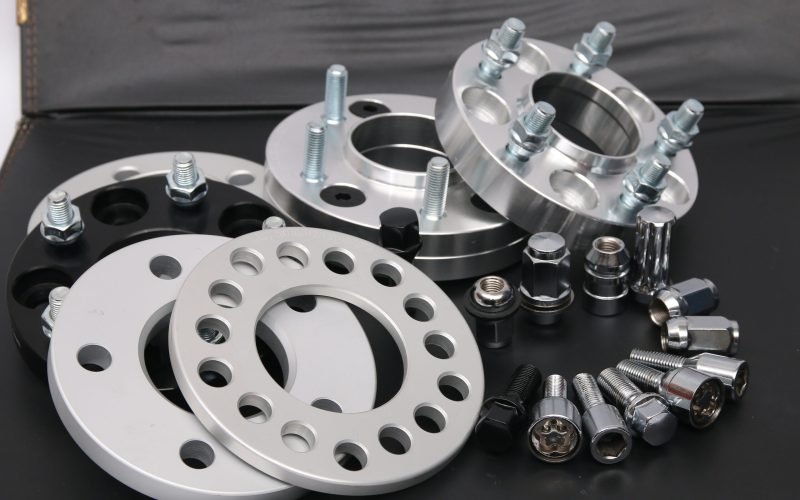

admin1
May 31, 2025
Zinc Applications in Heavy-Duty Truck Wheel Weights

Zinc has become an essential material for truck wheel weights due to its exceptional properties. Its durability ensures long-lasting performance, even under the demanding conditions of heavy-duty vehicles. Corrosion resistance further enhances its reliability, helping maintain wheel balance over time. Additionally, zinc offers significant environmental benefits compared to traditional materials. By aligning with modern regulations, it supports safer, more sustainable transportation. Properly balanced truck wheel weights improve vehicle stability, reducing wear and enhancing overall safety on the road.
What Are Truck Wheel Weights and Their Purpose?

Truck wheel weights play a critical role in maintaining the stability and efficiency of heavy-duty vehicles. These small yet essential components are attached to the wheels to ensure proper wheel weight balance. By doing so, they help reduce vibrations, improve handling, and enhance overall vehicle performance. For heavy-duty trucks, which often carry substantial loads, the importance of balanced wheels cannot be overstated.
The Role of Truck Wheel Weights in Vehicle Safety
Truck wheel weights contribute significantly to vehicle safety by ensuring that the wheels rotate evenly. Uneven wheel rotation can lead to vibrations, which may compromise the driver’s ability to control the vehicle. This is particularly dangerous for heavy-duty trucks, where even minor imbalances can have amplified effects due to their size and weight.
The truck safety problem is a consequence of the discrepancy in performance levels and mass of cars and trucks. The discrepancy in performance means that trucks cannot start, stop, or maneuver nearly as quickly as cars. The discrepancy in weight produces a greatly elevated probability of injury or death when cars and trucks collide.
Properly balanced wheels also reduce the strain on the suspension system, which is vital for maintaining stability during sharp turns or sudden stops. By minimizing these risks, truck wheel weights play a pivotal role in keeping both the driver and other road users safe.
Importance of Wheel Weight Balance for Vehicle Performance
Wheel weight balance is essential for optimizing vehicle performance. Balanced wheels ensure smoother rides by reducing vibrations and improving traction. This not only enhances the driving experience but also protects critical components from premature wear. For instance, balanced wheels decrease suspension wear by 6.8%, prolonging the lifespan of these vital parts.
Additionally, balanced wheels improve fuel efficiency by reducing rolling resistance. This allows the engine to operate more efficiently, leading to lower fuel consumption and cost savings over time. Studies have shown that balanced wheels reduce peak vertical acceleration by 10.3%, enhancing ride comfort, and minimize lateral body roll by 13.4% during sharp turns, further improving safety and performance.
Truck wheel weights are indispensable for maintaining wheel weight balance, ensuring that heavy-duty vehicles perform reliably and safely under demanding conditions.
Why Zinc? The Key Benefits

Durability and Corrosion Resistance in Heavy-Duty Applications
Zinc stands out as a material for truck wheel weights due to its exceptional durability. Heavy-duty vehicles operate under challenging conditions, including exposure to moisture, road debris, and extreme temperatures. Zinc wheel weights resist wear and tear, ensuring they remain functional over extended periods. Their ability to withstand corrosion makes them ideal for environments where other materials might degrade quickly.
The automotive industry increasingly adopts zinc alloys for their lightweight and durable properties. These attributes help meet emissions regulations and improve fuel efficiency. Zinc’s robustness also appeals to sectors like construction and industrial machinery, where durability is crucial for long-term performance. For truck wheel weights, this durability translates into reliable wheel balance, reducing the need for frequent replacements and maintenance.
Environmental Advantages of Zinc Over Lead
Zinc offers significant environmental benefits compared to lead, a material historically used for wheel weights. Lead poses risks to ecosystems and human health due to its toxicity. Zinc, on the other hand, is non-toxic and recyclable, making it a safer alternative. Its use aligns with global efforts to reduce environmental impact and comply with stricter regulations.
Many industries are moving away from lead-based products, driven by sustainability goals and legal requirements. Zinc wheel weights contribute to this shift by offering a greener solution without compromising performance. Their recyclability ensures that used weights can be repurposed, minimizing waste and conserving resources. This makes zinc an environmentally responsible choice for heavy-duty applications.
Zinc’s Contribution to Vehicle Performance and Safety
Zinc wheel weights play a vital role in enhancing vehicle performance and safety. Their durability ensures consistent wheel balance, which reduces vibrations and improves handling. Balanced wheels protect critical components like suspension systems from premature wear, extending their lifespan. Zinc’s corrosion resistance further supports long-term reliability, even in harsh conditions.
By maintaining proper wheel weight balance, zinc wheel weights improve fuel efficiency. Reduced rolling resistance allows engines to operate more efficiently, lowering fuel consumption. Additionally, smoother rides enhance driver comfort and safety, especially during long-haul operations. Zinc’s contribution to vehicle performance makes it an indispensable material for heavy-duty trucks.
Zinc vs. Other Materials
Comparing Zinc and Lead for Truck Wheel Weights
Zinc has emerged as a safer and more sustainable alternative to lead for truck wheel weights. Lead, once widely used, poses significant health and environmental risks. Its toxicity can contaminate soil and water, harming ecosystems and human health. Zinc, in contrast, is non-toxic and recyclable, making it a responsible choice for industries aiming to reduce their environmental footprint.
Lead-based wheel weights often degrade faster due to corrosion, especially in wet or salty conditions. Zinc resists corrosion, ensuring longer-lasting performance. This durability reduces the frequency of replacements, saving costs for fleet operators. Additionally, zinc complies with modern environmental regulations, which have restricted or banned lead usage in many regions.
Tip: Choosing zinc wheel weights not only protects the environment but also aligns with global sustainability goals.
Zinc vs. Steel: Striking the Right Balance
Steel is another material used for truck wheel weights, but it lacks the versatility of zinc. Steel is heavier, which can increase the overall weight of the vehicle. This added weight impacts fuel efficiency, making steel less ideal for heavy-duty trucks that prioritize cost-effective operations.
Zinc offers a balanced solution. It is lightweight yet durable, ensuring optimal wheel weight balance without compromising performance. Unlike steel, zinc resists corrosion, even in harsh environments. This makes zinc wheel weights more reliable for trucks exposed to moisture, road salt, and extreme temperatures.
Steel wheel weights also require more energy to produce, contributing to higher carbon emissions during manufacturing. Zinc, with its recyclability and lower production energy requirements, supports greener practices. For industries focused on sustainability, zinc provides a better balance between performance and environmental responsibility.
Why Zinc Is the Optimal Choice for Heavy-Duty Vehicles
Zinc combines durability, safety, and sustainability, making it the ideal material for heavy-duty truck wheel weights. Its corrosion resistance ensures consistent wheel balance, even under challenging conditions. This reliability reduces vibrations, improves handling, and protects critical components like suspension systems from premature wear.
Zinc’s lightweight properties enhance fuel efficiency by minimizing rolling resistance. Trucks equipped with zinc wheel weights consume less fuel, lowering operational costs and reducing emissions. This makes zinc an economical and eco-friendly choice for fleet operators.
Note: Zinc’s recyclability further strengthens its appeal. Used wheel weights can be repurposed, reducing waste and conserving resources.
Modern industry trends favor zinc due to its compliance with environmental regulations and its ability to meet the demands of heavy-duty applications. Its combination of performance, safety, and sustainability positions zinc as the optimal material for truck wheel weights.
Environmental and Regulatory Considerations
Zinc’s Compliance with Environmental Standards
Zinc complies with global environmental standards, making it a preferred material for truck wheel weights. Regulatory frameworks like the EU RoHS Directive set strict limits on heavy metals in products, including zinc. This ensures that zinc-based components meet safety and environmental requirements.
- Zinc Stearate Tolerance Exemption: This exemption allows zinc stearate in pesticide formulations, further demonstrating its compliance with safety standards.
Zinc’s adherence to these regulations highlights its role in promoting safer and more sustainable practices in the automotive industry. Manufacturers of clip-on wheel weights and stick-on wheel weights benefit from using zinc, as it aligns with eco-friendly goals and regulatory demands.
Recyclability and Sustainability of Zinc Wheel Weights
Zinc wheel weights offer significant sustainability advantages due to their recyclability. Life cycle assessments reveal that zinc’s environmental impact during manufacturing is relatively low. However, the loss of zinc weights on roadways can shift the environmental burden. Despite this, zinc remains less harmful than lead, making it a safer alternative for eco-friendly applications.
Recycling zinc wheel weights reduces waste and conserves resources. Both clip-on wheel weights and stick-on wheel weights made from zinc can be repurposed, supporting circular economy principles. This makes zinc an excellent choice for industries prioritizing green practices.
Industry Trends Moving Away from Lead-Based Weights
The automotive industry is shifting toward eco-friendly materials for wheel weights. Lead, once widely used, is being replaced by safer alternatives like zinc, steel, and polymer composites. These materials offer lower toxicity and align with sustainability goals.
- Eco-friendly materials leading the shift:
- Steel: Cost-effective and recyclable.
- Zinc: Durable and less toxic than lead.
- Polymer Composites: Lightweight and made from recycled materials.
Innovations in manufacturing, such as precision engineering and modular designs, further enhance the eco-friendly appeal of zinc wheel weights. Stick-on wheel weights and clip-on wheel weights made from zinc represent a sustainable solution for heavy-duty vehicles.
Practical Applications and Industry Trends
Zinc in Modern Heavy-Duty Truck Wheel Weights
Zinc has become a cornerstone material in the production of wheel weights for heavy-duty vehicles. Manufacturers now offer plastic-coated zinc hammer-on wheel weights, which are designed to meet the high standards required by OEMs. These weights are particularly suitable for European and Asian vehicles with alloy rims, showcasing their versatility across different markets. Their durability and corrosion resistance ensure long-lasting performance, even under challenging conditions.
The use of zinc in truck tire balancing has also improved the efficiency of wheel weight installation. Zinc weights are lightweight yet robust, making them easier to handle during the installation process. This reduces labor time and ensures precise placement, which is critical for maintaining proper wheel balance. By enhancing the efficiency of truck tire balancing, zinc-based weights contribute to smoother rides and reduced wear on vehicle components.
Innovations in Zinc-Based Wheel Weight Design
Recent advancements in zinc-based wheel weight design have focused on improving both functionality and efficiency. Manufacturers are now exploring modular designs that allow for easier customization during installation. These designs cater to the specific needs of heavy-duty vehicles, ensuring optimal performance regardless of load or terrain.
Another innovation involves the development of specialized zinc weights for electric vehicles (EVs). As EVs gain popularity, the demand for lightweight and durable materials has surged. Zinc’s properties make it an ideal choice for these applications, where efficiency and precision are paramount. Additionally, automated manufacturing processes have enhanced the production of zinc wheel weights, ensuring consistent quality while reducing costs.
Emerging Trends in Wheel Weight Materials
The wheel weight industry is evolving rapidly, driven by the need for efficiency, sustainability, and advanced technology. Several key trends are shaping the future of truck tire balancing materials:
- Lightweight Materials: Advanced alloys and polymers are being adopted to improve fuel efficiency.
- Smart Wheel Weight Technology: Sensors and monitoring systems are being integrated into wheel weights to enhance performance and maintenance.
- Sustainable Manufacturing: Environmentally friendly production processes are becoming a priority for manufacturers.
- Expansion in Emerging Markets: The automotive sectors in Asia-Pacific and Latin America are experiencing growth due to improved infrastructure and affordability.
- Compliance with Emission Regulations: Stricter global regulations are driving the adoption of materials like zinc, which align with sustainability goals.
These trends highlight the growing importance of zinc in truck tire balancing. Its recyclability, durability, and adaptability position it as a leading material for modern wheel weight applications.
Zinc plays a vital role in the production of truck wheel weights, offering unmatched durability and corrosion resistance. Its ability to maintain balanced wheels ensures smoother rides and improves vehicle safety. Proper installation of zinc wheel weights reduces vibrations, protecting critical components and extending vehicle longevity. Regular maintenance of wheel weights further enhances their performance, minimizing wear and tear. Zinc’s recyclability and compliance with environmental standards make it a sustainable choice for heavy-duty applications. As the industry advances, zinc remains essential for improving vehicle safety and supporting eco-friendly practices.
FAQ
What is the primary purpose of truck wheel weights?
Truck wheel weights ensure proper wheel balance. Balanced wheels reduce vibrations, improve handling, and enhance the overall safety of a vehicle. For heavy-duty trucks, maintaining balance is crucial to prevent uneven wear and ensure smooth operation under demanding conditions.
Why is zinc preferred over lead for wheel weights?
Zinc is non-toxic, recyclable, and durable. Unlike lead, which poses environmental and health risks, zinc complies with modern regulations. Its corrosion resistance ensures long-lasting performance, making it a safer and more sustainable choice for maintaining vehicle balance.
How do zinc wheel weights improve vehicle performance?
Zinc wheel weights maintain wheel balance, reducing vibrations and improving traction. This enhances ride comfort and protects critical components like suspension systems. Balanced wheels also lower rolling resistance, improving fuel efficiency and extending the lifespan of the vehicle.
Are zinc wheel weights suitable for all types of vehicles?
Yes, zinc wheel weights are versatile and suitable for various vehicles, including heavy-duty trucks, passenger cars, and electric vehicles. Their lightweight and durable properties make them ideal for maintaining balance across different vehicle types and driving conditions.
How does zinc contribute to environmental sustainability?
Zinc is recyclable and less harmful to ecosystems compared to lead. Its use in wheel weights supports sustainability by reducing waste and conserving resources. Zinc’s compliance with environmental standards aligns with global efforts to promote eco-friendly practices in the automotive industry.
